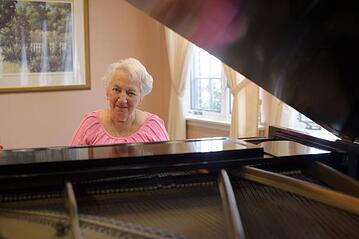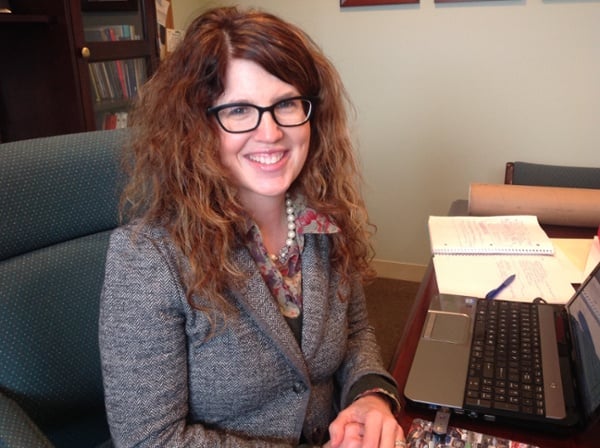 It is a horrible reality but elder abuse happens. Ageism (discrimination against the elderly) fuels it. And what is most disturbing is that family members are often the perpetrators. There is no one type of elder abuse; it can play out in many ways but is recognized by demeaning verbal attacks, physical violence, sexual assault, neglect and theft.
It is a horrible reality but elder abuse happens. Ageism (discrimination against the elderly) fuels it. And what is most disturbing is that family members are often the perpetrators. There is no one type of elder abuse; it can play out in many ways but is recognized by demeaning verbal attacks, physical violence, sexual assault, neglect and theft.
“Elder Abuse Awareness” is an ongoing campaign by the Assisted Living Federation of America (ALFA) and is supported by senior living providers who want to ensure a safe environment for residents, as well as educate the public on what elder abuse looks like.
Because of the stigma attached to it, elder abuse is still too much under the radar. Only one in 14 cases is reported to authorities annually. Because it is a disheartening and sensitive topic, we hope to help by providing facts on this type of abuse, what’s being done to help end it and how to report it, when suspected.
Elder Abuse Facts
- Studies show that victims of elder abuse are at increased risk of dying within three years of mistreatment.
- Underreporting is a major concern with elder abuse, which means most victims are not getting the help they urgently need.
- Elderly women are at higher risk for abuse.
- Victims are often those suffering from dementia, social isolation and poor physical health.
- Elder abuse is most common in domestic settings where the perpetrator happens to be the senior’s adult child.
- Many aging seniors fear speaking out on the abuse due to denial, feelings of shame, guilt or fear of retaliation.
Warning Signs of Elder Abuse
- Mistreatment – abrasions, burns, broken bones and bruises
- Neglect – bed sores, poor hygiene, unusual weight loss and unattended medical needs.
- Unhealthy relationship – frequent arguments, tenseness and fear between family member and elderly person.
- Theft- misappropriated money (cash, checks, credit cards) or missing personal items.
- Sexual abuse – bruises around the breasts and genital area
What is Being Done to Help
Year-round campaigns plus a “World Elder Abuse Awareness Day” are activities designed to engender public discourse and proactive response.
Senior living providers make sure that clear procedures and zero tolerance policies are instituted to ensure every employee understands the importance of reporting incidents of abuse.
How you can take a stand
- Report suspected cases of abuse immediately to Adult Protective Services or law enforcement.
- Make a point of looking for warning signs; aside from visible bruises, pay attention to shifts in personality or behavior.
- Help raise awareness. Participate in “World Elder Abuse Awareness Day”.
- Volunteer at differing posts throughout the year. Programs are ongoing in local communities.
Elder abuse is unjustifiable cruelty to another, just like bullying. All efforts should be made to make it visible in the public’s eye to protect the victim.
Key Takeaways:
- There is no one type of elder abuse; it is typically identified in situations where continual demeaning rants is meted out on the elderly, fist throwing, slapping and sexual assaults occur, neglect and stealing of personal items are present.
- “Elder Abuse Awareness” is an ongoing campaign marshaled by the Assisted Living Federation of America (ALFA) and is supported by senior living providers.
- Elder abuse is still very much under the radar; only one in 14 cases are reported to authorities, annually.
- Report cases of abuse immediately to Adult Protective Services or law enforcement.
- Help raise awareness. Participate in “World Elder Abuse Awareness Day” and ongoing campaigns held throughout the year.
Learn more:
Please visit http://www.alfa.org/alfa/Elder_Abuse.asp to learn more about Elder Abuse Awareness.





 It is a horrible reality but elder abuse happens. Ageism (discrimination against the elderly) fuels it. And what is most disturbing is that family members are often the perpetrators. There is no one type of elder abuse; it can play out in many ways but is recognized by demeaning verbal attacks, physical violence, sexual assault, neglect and theft.
It is a horrible reality but elder abuse happens. Ageism (discrimination against the elderly) fuels it. And what is most disturbing is that family members are often the perpetrators. There is no one type of elder abuse; it can play out in many ways but is recognized by demeaning verbal attacks, physical violence, sexual assault, neglect and theft.